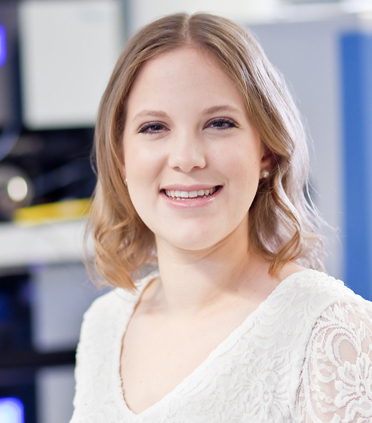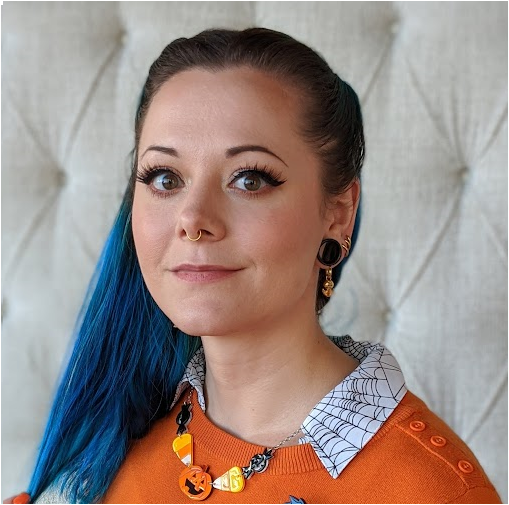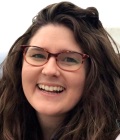The following instructors and speakers have agreed to contribute their expertise to the success of UW Course:
 |
Michael J. MacCoss, Ph.D. Mike became interested in biomedical applications of mass spectrometry while working in Dr. Patrick Griffin’s protein mass spectrometry lab at Merck Research Laboratories. He obtained a Ph.D. with Professor Dwight Matthews and pursued a postdoc with Professor John R. Yates III. In 2004 he started the MacCoss lab at the University of Washington and it became obvious that while mass spectrometry data could be collected quickly and robustly, the lack of computational tools for the visualization and analysis of these data was a stumbling block. In 2009 he recruited Brendan MacLean with the goal of developing professional quality software tools for quantitative proteomics. Mike has worked closely with the Skyline development team and our outstanding group of laboratory scientists and collaborators to ensure that our software uses analytical approaches that have been thoroughly vetted by the mass spectrometry community. |
|
 |
Brendan MacLean Brendan worked at Microsoft for 8 years in the 1990s where he was a lead developer and development manager for the Visual C++/Developer Studio Project. Since leaving Microsoft, Brendan has been the Vice President of Engineering for Westside Corporation, Director of Engineering for BEA Systems, Inc., Sr. Software Engineer at the Fred Hutchinson Cancer Research Center, and a founding partner of LakKey Software. In this last position he was one of the key programmers responsible for the Computational Proteomics Analysis System (CPAS), made significant contributions to the development of X!Tandem and the Trans Proteomic Pipeline, and created the LabKey Enterprise Pipeline. Since August, 2008 he has worked as a Sr. Software Engineer within the MacCoss lab and been responsible for all aspects of design, development and support in creating the Skyline Targeted Proteomics Environment and its growing worldwide user community. |
|
 |
Miriam Abele Miriam is a PhD student at the Technical University of Munich in Germany working in the groups of Dr. Christina Ludwig and Professor Bernhard Kuster. Her main interest is the development of bacterial proteomics workflows and their application for the characterization and functionalizing of microbial proteomes. Miriam is also working at the BayBioMS Core Facility and there responsible for the development of diverse mass-spectrometric methods for collaborative projects, which includes data-dependent acquisition strategies, data-independent acquisition strategies, as well as targeted assays. |
|
 |
Meena Choi, Ph.D. |
|
 |
Kat Forrest Kat Forrest is a research scientist and graduate student in the Hoofnagle Laboratory at the University of Washington. Prior to joining UW, Kat worked as an analytical chemist at Boston-based synthetic biology company Ginkgo Bioworks, where she helped to develop quantitative methods to support bioengineering projects. In her current role in the Hoofnagle Lab, Kat regularly utilizes Skyline in her efforts to develop mass spectrometry assays for small molecules and proteins. |
|
 |
Lindsay K. Pino, Ph.D. Lindsay is the co-founder and chief technology officer at Talus Bioscience. With over a decade’s experience in analytical chemistry and computational biology, she works on developing techniques for quantitative proteomics. In particular, at Talus her focus is on the challenges associated with scaling-up quantitative proteomics experiments. She is directly involved in a large variety of research projects spanning cancer, molecular mechanisms of aging, epigenetics, and spatiotemporal proteomics, all built on her foundational skills in quantitative mass spectrometry proteomics. |
|
 |
Deanna Plubell Deanna is a PhD student in the MacCoss lab at the University of Washington. A portion of her research has been the use of data-independent acquisition to aid in peptide selection for targeted assay development. Her other research interests include the use of mass spectrometry techniques for detecting proteolytic cleavage activity and small endogenous polypeptides in neurodegenerative disease. Prior to joining the MacCoss lab, Deanna worked at Oregon Health & Science University where she used both discovery and targeted proteomics methods to investigate changes to adipose tissue and lipoprotein proteomes in cardiovascular and metabolic diseases. |
|
 |
Birgit Schilling, Ph.D. Birgit is Professor and the Director of the Mass Spectrometry and Chemistry Core at the Buck Institute for Research on Aging in Novato, CA. Research projects include investigations of neurodegenerative diseases, aging, cancer, mitochondrial damage, protein posttranslational modifications including acetylation in bacteria, the role of surface glycoconjugates in bacterial pathogenesis etc., but also mass spectrometric method development. Birgit has worked in the field of protein quantitation to assess differential protein expression or changes in posttranslational modifications, particularly using selected reaction monitoring stable isotope dilution mass spectrometry (SRM-SID-MS), and other chemical and metabolic labeling quantitative workflows, i.e., iTRAQ and SILAC technologies. Birgit has participated in large multi-laboratory SRM verification studies taking advantage of Skyline’s platform independent features. In recent years, she has used more and more label free protein quantitation approaches to investigate discovery mass spectrometric data sets (Skyline MS1 Filtering), as well as newer quantitative workflows, such as high resolution data-independent acquisitions (SWATH and PRM). Birgit has co-developed some algorithms for the Skyline Tool Store and she also extensively uses the interactive data sharing features of the Panorama webserver. |
|
 |
Brian Searle, Ph.D. Brian is an Assistant Professor at the Ohio State University Medical Center in the Department of Biomedical Informatics and a member of the Pelotonia Institute for Immuno-Oncology (PIIO). Brian received his chemistry BA at Reed College in 2001. In 2004, he co-founded Proteome Software with Mark Turner and Dr. Ashley McCormack to produce and distribute cutting-edge data analysis software for proteomicists. In 2014, he returned to academia to earn his PhD with Dr. Michael MacCoss at University of Washington, where he developed methods to detect and quantify proteins and phosphosites using mass spectrometry. His lab at PIIO spans the intersection of proteomics, mass spectrometry, bioinformatics, and technology development to study human genetic variation in the backdrop of cancer. |
|
 |
Vagisha Sharma Vagisha got involved with proteomics at UC San Diego where she worked with Prof. Vineet Bafna. During that time she built her first tools for visualizing Mass Spectrometry data while working at ActivX Biosciences. Since moving to Seattle Vagisha has worked on Mass Spectrometry pipelines for the Aebersold group at the Institute for Systems Biology, and developed a data management system while at the University of Washington Proteomics Resource and the Yeast Resource Center. She joined the Skyline team in October 2011 where she has been the lead developer for the Panorama Targeted Proteomics Knowledge Base. |
|
 |
Nicholas Shulman Nick worked from 1995-2000 at Microsoft on the Microsoft Access team, leaving to join Westside Corporation with Brendan to create browser-based database design tools. After Westside was acquired by BEA Systems, Nick created a new graphical JSP designer for Weblogic Workshop, an award winning Integrated Development Environment for enterprise Java applications. At LabKey Corporation, Nick created the flow cytometry module and the graphical query designer. Since March, 2009 he has worked in the Maccoss lab on Skyline and Topograph, a quantitative analysis tool for protein turnover experiments. |
|
 |
Mehar Un Nissa, Ph.D. Mehar is a Post-doctoral fellow in Ranish Lab at Institute for Systems Biology (ISB) Seattle. She joined ISB in November 2022. Before joining the Ranish Lab, she completed her PhD from Indian Institute of Technology Bombay (IITB), India. During her PhD, she has worked on proteomic investigation of an economically important food fish, Labeo rohita. Currently her focus is on developing targeted proteomic assay for absolute quantification of proteins (transcriptional coactivators) associated with Mixed Lineage Leukemia. |